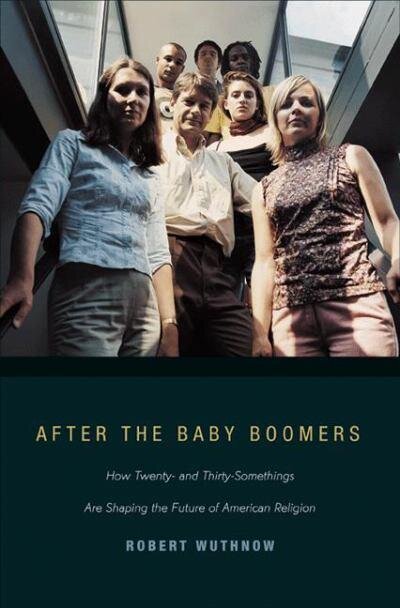Robert Wuthnow, After the Baby-Boomers: How Twenty-and-Thirty-Somethings Are Shaping the Future of American Religion. Princeton University Press, 2010.
Note: This listing is part of the site archive. While these materials may have some enduring value, it is strongly suggested that you use the reference link below for possible updates or click through to Amazon and allow their settings to suggest more current resources.
Referenced in: Generational Issues in Churches
LifeandLeadership.com Summary
Robert Wuthnow is one of the most respected sociologists of religion today. The focus here is on the religious lives of Americans aged 21-45. This spans two generations including the older millennials (emerging adults) and busters (young adults). It looks at their views on worship, spirituality, politics, and theology.
This is the kind of book that can be read selectively. The chapters are divided well according to subject matter. Several chapters are especially helpful. Chapter one looks at the uncertain future of American religion in terms of how the younger generations appropriate it. Chapter two describes seven key trends that characterize the changing life worlds of young adults: delayed marriage, waiting to have children, worries concerning work and money, the daunting cost of higher education, hesitation to enter committed relationships, globalization, and the cultural information explosion. Chapters five and six consider the religious beliefs and spiritual practices of this age group. Chapter ten on “The Virtual Church” looks at religious uses of the internet.
This is dense and academic, but surprisingly readable. Perusing the table of contents and the list of figures and tables in the front will help the reader appropriate the most helpful content.
From the Publisher
Much has been written about the profound impact the post-World War II baby boomers had on American religion. But the lifestyles and beliefs of the generation that has followed—and the influence these younger Americans in their twenties and thirties are having on the face of religion—are not so well understood. It is this next wave of post-boomers that Robert Wuthnow examines in this illuminating book.
What are their churchgoing habits and spiritual interests and needs? How does their faith affect their families, their communities, and their politics? Interpreting new evidence from scores of in-depth interviews and surveys, Wuthnow reveals a generation of younger adults who, unlike the baby boomers that preceded them, are taking their time establishing themselves in careers, getting married, starting families of their own, and settling down—resulting in an estimated six million fewer regular churchgoers. He shows how the recent growth in evangelicalism is tapering off, and traces how biblical literalism, while still popular, is becoming less dogmatic and more preoccupied with practical guidance. At the same time, Wuthnow explains how conflicts between religious liberals and conservatives continue—including among new immigrant groups such as Hispanics and Asians—and how in the absence of institutional support many post-boomers have taken a more individualistic, improvised approach to spirituality. Wuthnow’s fascinating analysis also explores the impacts of the Internet and so-called virtual churches, and the appeal of megachurches.
After the Baby Boomers offers us a tantalizing look at the future of American religion for decades to come.
About the Author
Robert Wuthnow is the Gerhard R. Andlinger ‘52 Professor of Sociology and director of the Center for the Study of Religion at Princeton University. His books include “American Mythos: Why Our Best Efforts to Be a Better Nation Fall Short” and “America and the Challenges of Religious Diversity” (both Princeton).
***For additional information on this resource, including reviews, click the bookstore links. Check the reference at page top or the links below for resource guides on related topics.***
Related Areas
See Other Resources on Generational Issues:
See Resource Guides on Over 100 Areas of Ministry Leadership:


